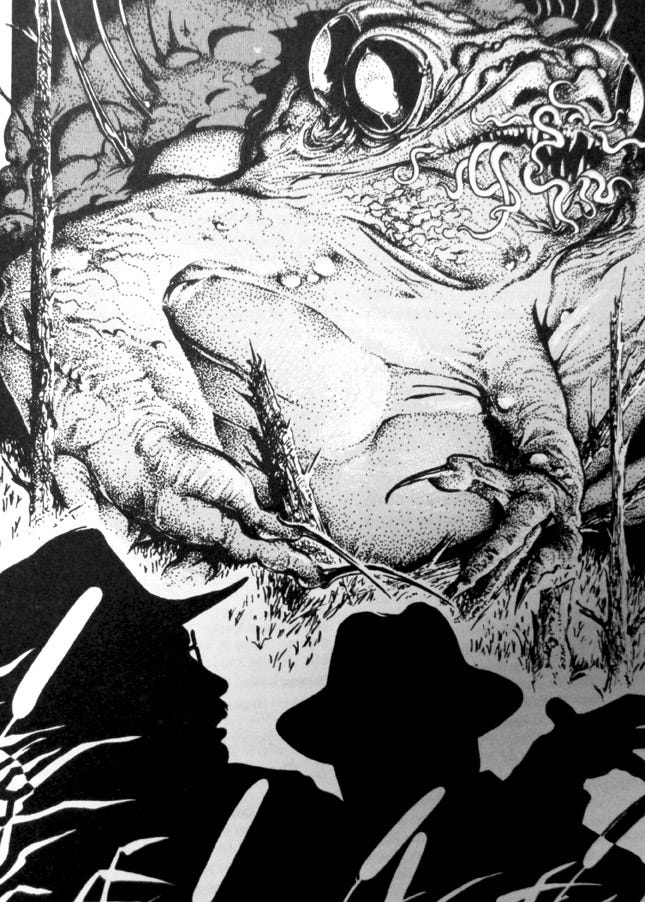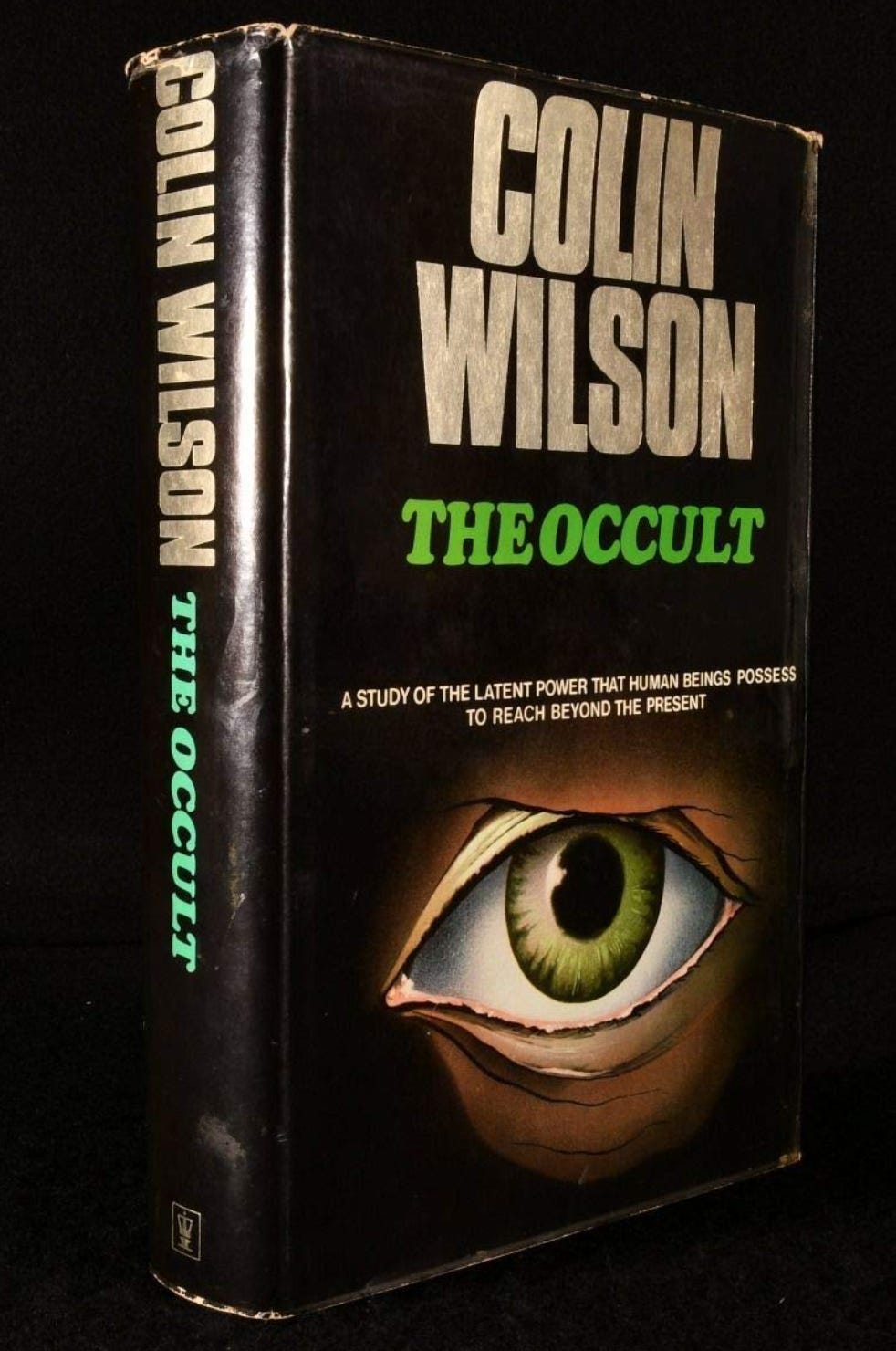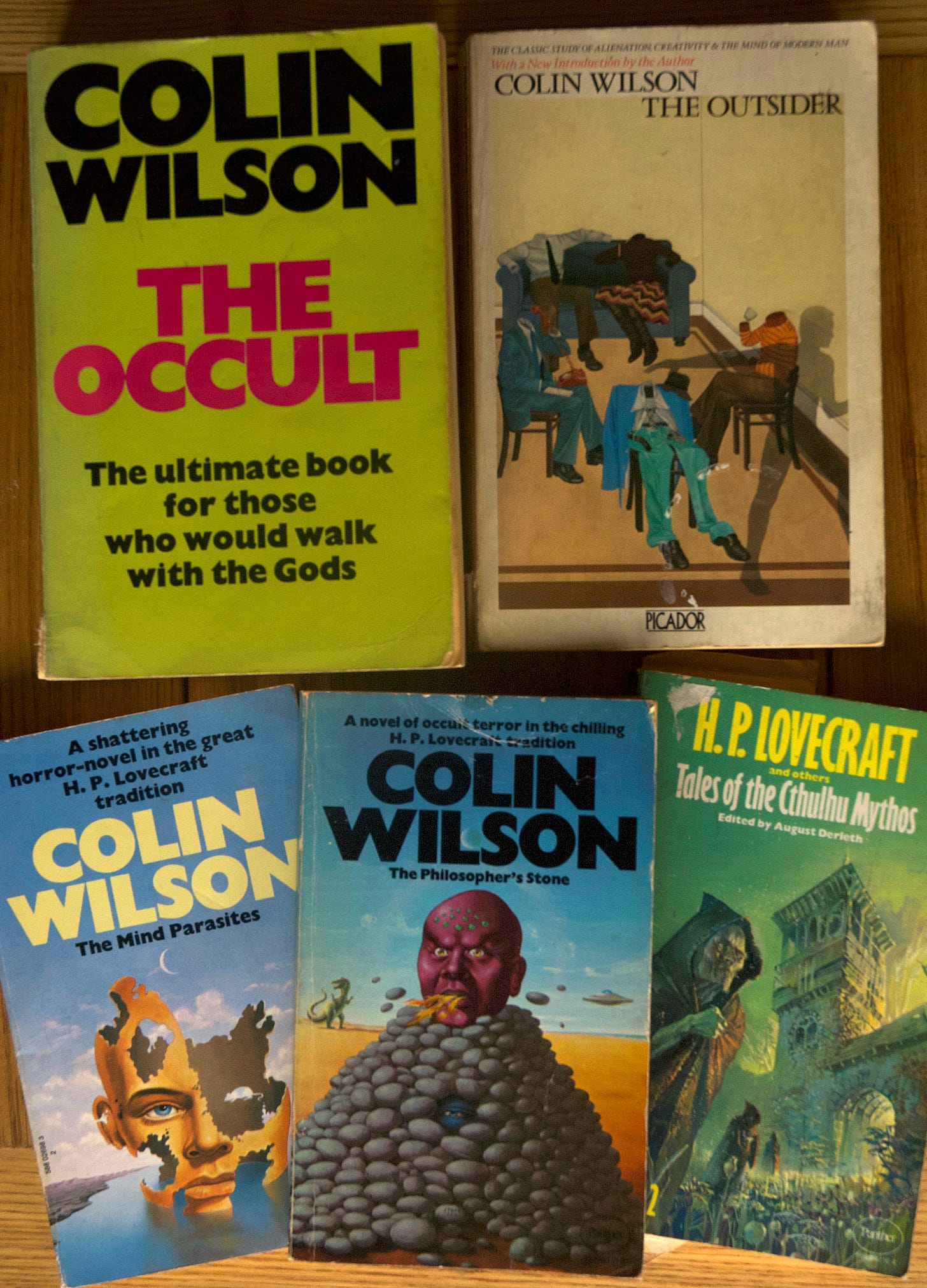“Have you ever heard of the Necronomicon?” I asked him, smiling.
“Of course.”
I goggled at him. “You have? Where?”
“In Lovecraft. Isn’t that what you mean?”
“Who on earth is Lovecraft?”
“Don’t you know? One of our local writers in Providence. He died about thirty years ago. Haven’t you come across his name?”
From The Return of the Lloigor
Colin Wilson (1931-2013) was a prolific English author of well over a hundred books on subjects as diverse as philosophy, literary criticism, criminology, and the occult, as well as penning many novels, and short stories. He made his startling debut into the literary world with a critically acclaimed book The Outsider published in 1956 when Wilson was only 24. He wrote it in the Reading Room of the British Museum whilst sleeping rough on Hampstead Heath.
This work was lionized by a broad spectrum of critics of both the political left and the right. Indeed, Sir Oswald Mosley himself was moved to write in a review of The Outsider:
“A strangely mature and subtle mind has produced a brilliant synopsis of the modern mind and spirit. He does not claim to advance any solution, though he points in various directions where solutions may be found.”
Wilson’s book was “a philosophy of and call to unabashed and unapologetic heroism, based upon the best (and now discredited by the mainstream) aspects of the Western tradition.”
The Outsider launched Wilson on a remarkably prolific literary career that through its breadth, reached an astonishingly broad audience.
In 1971, his interest in the ‘mystical’ led to another seminal work, The Occult. This book came to define the second part of his career exploring paranormal and esoteric traditions, a research journey that, Wilson believed, would provide further evidence for his proposed coming change in human consciousness. His popularity not only resulted in a burgeoning bibliography but also lecture tours and television programs on the uncanny.
But ever the literary polymath, Wilson was also an outstanding writer of fiction. After writing a critique of Lovecraft in The Strength to Dream: Literature and the Imagination (1962) August Derleth challenged Wilson to write in a mythos vein if he felt he could do better. Wilson’s subsequent efforts at writing ‘weird’ tales actually produced a number of first-rate mythos-inspired works, including The Philosopher’s Stone and The Mind Parasites.
His novella The Return of the Lloigor is one such piece. But it is a tale that is hard to obtain easily these days. Having seemingly forgiven Wilson’s critique of Lovecraft, The Return of the Lloigor was first published in August Derleth’s 1969 anthology, Tales of the Cthulhu Mythos. I came across it in a second-hand purchase of a Panther reprint (1975) where it is reproduced in volume 2 of H. P. Lovecraft and Others, Tales of the Cthulhu Mythos. And boy, am I glad I did find it! The Return of the Lloigor has all the elements of a classic Lovecraftian potboiler and is written in Wilson’s convincing and engaging prose style. I devoured the 57-page yarn in a single sitting.
The main character, Professor Paul Dunbar Lang, is an Anglo-American academic who slowly learns that the prosaic reality he had always casually taken for granted, had deeper, far darker elements lying beneath the surface, quite literally. After discovering a hidden cipher in the Voynich Manuscript, he begins a journey that takes him from Virginia to London to Wales, looking for secrets that are hinted at in the tale by Lang’s research into both Lovecraft and Machen.
Lang, along with his erstwhile confederate, a local eccentric and antiquarian, Colonel Urquart, stumbles on a conspiracy of horrific proportions. And something is coming, the power of the awakening Lloigor, formless and invisible beings, once masters of Mu and already ancient when the pyramids were still unquarried stone.
One Mr. Chickno, an old degenerate headman of a local gypsy clan in league with the Lloigor, tries to warn Lang off.
“These things aren’t out of a fairy story, you know. They’re not playing games... You see, this is their world anyway. We’re a mistake. They want it back again.”
This tale has everything to satisfy the lover of mythos yarns; ancient manuscripts, secret cults, dark legacies, weird yokels, references to Innsmouth, and even a Marsh that Lovecraft is rumored in the tale to have met. And as the story unfolds, despite our gallant heroes’ best efforts in collecting the evidence of the coming disaster through newspaper clippings and Fortean analysis, the dark, unspeakable power that is awakening grows ever more oppressively real.
Despite his initial critique of Lovecraft, it seems Wilson grew to respect the Old Gentleman from Providence. And, as a result of Derleth’s challenge, Wilson’s efforts are such that every lover of the ‘weird’ should become familiar with them.
If nothing else, read The Return of the Lloigor if you have not already, a true ‘Lovecraftian’ gem awaits you.











Wonderful. I have been a Wilson enjoyer for decades, and his breadth of knowledge continues to inspire my own erratic career. Cheers!